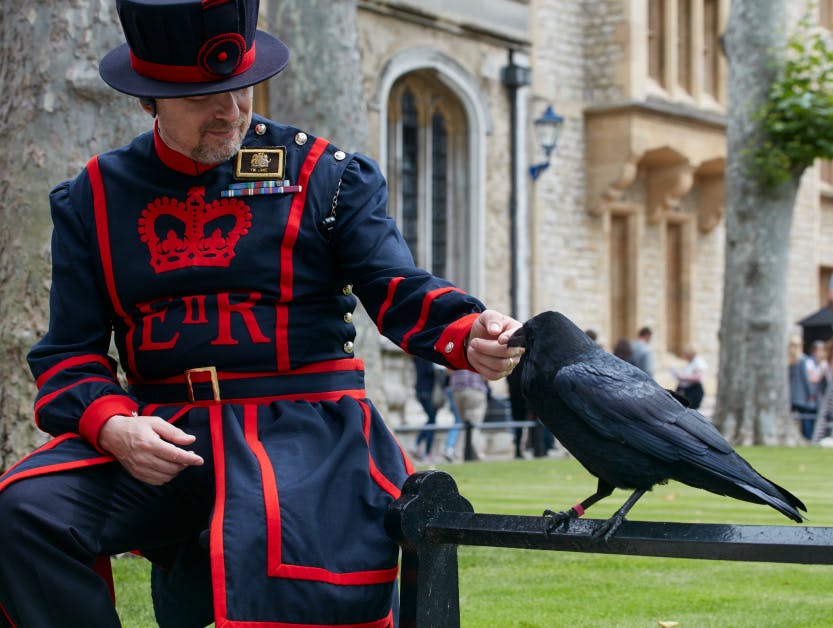This article is by GCI-Germany Elder Santiago Lange.

Liturgy is an important aspect of worship in the Christian faith. It helps us mature in our relationship with Jesus. But to gain that benefit, we need to understand what liturgy is, and how it is used in various worship traditions. Unfortunately, some Christians condemn all “church traditions” and “liturgical practices” (whatever they may mean by those terms), seeing them as cloaked attempts to undermine and weaken the authority of the Bible. But, is that actually the case?
Are worship traditions permissible?
In England, at the Tower of London, every afternoon at exactly 4 PM there is an interesting ceremony. The Beefeaters, British royalty’s ceremonial guards, come out of the Tower and feed the ravens on the front lawn. There is a legend that as long as the ravens are fed, London would never fall to her enemies. During WWII and the Battle of Britain, when London was being bombed by the Nazis, many ravens were frightened away. Prime Minister Winston Churchill ordered the Beefeaters to secretly clip the wings of the remaining ravens, so they could not fly. Why? To provide a sense of stability and security to Londoners in a troubled time.

We know that Jesus is our strong anchor and that our primary identity must be in him. We don’t have to worry about “our ravens flying away.” We are secure in our Savior’s hands. And yet, there is a proper place in the Christian church for God-honoring traditions. Simply defined, a tradition is “that which is handed down from generation to generation.” Of and by themselves, traditions are neither “good” or “bad.” The content and reason for our traditions determine their potential value.
The New Testament speaks of tradition in a positive light. The apostle Paul wrote this: “…Stand firm and hold on to the traditions that we taught you, whether by speech or by letter” (2 Thess. 2:15, NET). Jesus did many things for which the only authority is tradition. For example, attendance in a synagogue (Luke 4:16) is not mentioned once in the Old Testament. Giving thanks before eating (Matt. 14:19) was not part of the Law. It was purely a Jewish tradition. The singing of a hymn at the end of the Passover meal (Matt. 26:30) was not part of the Law regarding Passover observance. The Feast of Dedication that Christ attended (John 10:22) was a Jewish celebration. Do these facts have any implications for a liturgy that is not directly commanded for Christians under the new covenant?
There are two extremes regarding traditions. The Pharisees were guilty of making tradition equal with the authority of Scripture. They believed in the Oral Law, a set of traditions reaching all the way back to Moses. The Pharisees taught that the Law in both its oral and written forms was binding. Unfortunately, they introduced various traditions that were designed more to protect and enrich themselves than to honor God.
What is liturgy?
An explanation of terms is needed at this point. The Oxford Dictionary of the Christian Church gives this definition of liturgy:
Liturgy (Gk. λειτουργία from λεώς ‘people’ and ἔργον ‘work’). The original Greek word was used of a public work of any kind, not only religious, but in the Septuagint, it is applied particularly to the services of the Temple. The word in English is used in two senses: (1) of all the prescribed services of the Church…and (2) specifically as a title of the Eucharist (as the chief act of public worship).
Over the centuries, some Christians have defended worship traditions or certain “liturgical practices” as having an equal footing with Scripture. As Evangelicals, we believe and assert that God’s Word is our final authority in all matters of faith and practice. The most notable “liturgical celebration” directly instructed by our Lord to his disciples is the “Lord’s Supper” (also called Communion and the Eucharist). But, that fact does not prohibit Christians from framing, expanding, teaching and cherishing a God-honoring liturgy for worship that focuses on God, who he is and what he had done. The above-mentioned examples and the New Testament witness underscore this claim.
Liturgical practices can help us focus on the story of Jesus, with the great events of his incarnation, birth, life, death, resurrection and ascension at its core and center. The RCL (Revised Common Lectionary) offers Christians a widely-accepted and meaningful liturgical pattern of worship that is strongly Christ-centered and gospel-shaped.



Please note that comments are moderated. Your comment will not appear until it is reviewed.